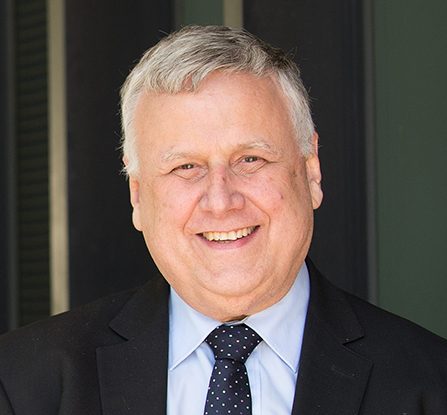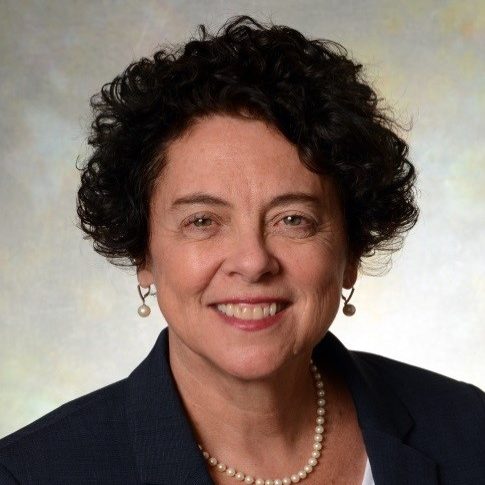ORGANISATIONAL STRUCTURE
Monash University leads the Australian arm of the ASPREE project in collaboration with investigators from distinguished research institutions.
Who we are
A large team across Victoria, Tasmania, the ACT and southern NSW, and South Australia work on the ASPREE project and sub-studies. Our diverse team includes: medical and scientific researchers; clinical specialists; project managers; data, ethics, finance, monitoring, administration and communications managers; data officers; project officers; study co-ordinators; research nurses; research assistants and a support team that ‘mans’ the phones, sends letters, makes appointments and takes questions.
ASPREE Principal Investigators (PIs) in Australia and the USA lead the project.
The Australian Management Committee oversees the scientific and operational conduct of ASPREE in Australia, including adherence to protocol, ethics and financial management and reports to the International Steering Committee.
The Australian Investigator Group brings to the project extensive expertise with members affiliated with leading research institutions nationally. More than 2000 GP Associate investigators in Australia and more than 20 Site Principal Investigators (PIs) in the USA, support the project.
ASPREE Principal Investigators

Prof John McNeil AO
PI ASPREE & Co-PI ASPREE-XT, Australia
Prof John McNeil was Head of Monash University’s School of Public Health and Preventive Medicine (SPHPM) and head of the Department of Epidemiology & Preventive Medicine (DEPM) from 1986 to 2019. Over that time, DEPM became one of the major clinical and public research units in the country.
John was PI on the 2nd Australian National Blood Pressure (ANBP2) trial, the ASFAST and NEMESS studies and is responsible for designing and planning the ASPREE trial. He has been involved in a variety of leadership roles including directorships of Austin Health, Alfred Health, the Australian Institute of Health & Welfare and the Metropolitan Ambulance Service. He is chair of the Alfred Hospital Ethics Committee.

A/Prof Joanne Ryan
Co-PI ASPREE-XT, Australia
Joanne has a background in molecular biology, biostatistics and a PhD in neuropsychiatric epidemiology.
Her research interests lie in the prevention of neuropsychiatric disorders, in particularly dementia and depression, prediction of risk and the identification of biomarkers (including epigenetic) for early diagnosis.
Joanne’s long-term vision is to reduce the prevalence and burden of neuropsychiatric disorders across the life-course and to drive strategies that optimise healthy cognitive ageing and mental well-being.

Prof Anne Murray
PI ASPREE & Co-PI ASPREE-XT, USA
Prof Anne Murray is a geriatrician/ internist and epidemiologist at Hennepin County Medical Center, and Professor of Medicine (Adjunct Neurology) at the University of Minnesota.
She is Medical Director of the Berman Center for Outcomes and Clinical Research – Hennepin Healthcare Research Institute – and conducts research in the epidemiology of cognitive impairment (dementia). She is also the PI for the BRain IN Kidney Disease (BRINK) Study and previous Midwest PI for the ACCORD Memory in Diabetes study. She earned her M.D. from University of Minnesota, and completed her internal medicine residency at Mayo Clinic, Rochester and Geriatrics fellowship and M.Sc. in Epidemiology at Harvard.

Prof Andrew Chan
Co-PI ASPREE-XT, USA
Dr Andrew T. Chan is Chief of the Clinical and Translational Epidemiology Unit (CTEU) at Massachusetts General Hospital (MGH), Director of Cancer Epidemiology at the MGH Cancer Center, and Professor of Medicine at Harvard Medical School (HMS). He also co-leads the Cancer Epidemiology Program at the Dana-Farber Harvard Cancer Center.
His research broadly aims to advance epidemiological investigation for the translation of discoveries into effective clinical interventions. His current focus is on chronic digestive diseases, including gastrointestinal cancer (colorectal, oesophageal, gastric), inflammatory bowel disease, diverticulitis, and gastrointestinal bleeding.
Investigator Groups
Australian Investigator Group
GP Associate Investigator Group (Australia)
Principal Investigator Physician Group per site (USA)
Australian Investigator Group
- Professor John McNeil (Co-principal Investigator ASPREE project and Chair) – Former Head of the School of Public Health and Preventive Medicine and Department of Epidemiology and Preventive Medicine, Monash University and Principal Investigator of the ASPREE trial in Australia
- A/Professor Joanne Ryan (Co-principal Investigator ASPREE-XT study) – Head, Biological Neuropsychiatry and Dementia research unit in the School of Public Health and Preventive Medicine, Monash University
- Dr Suzanne Orchard (Director) – Senior Research Fellow, Investigator and Director of the ASPREE-XT study, School of Public Health and Preventive Medicine, Monash University
- A/Professor Robyn Woods – Director of the ASPREE Healthy Ageing Biobank, Australian PI of the ASPREE-XT Microbiome Study, former Director of the ASPREE trial and retired Director of the ASPREE-XT study, School of Public Health and Preventive Medicine, Monash University
- Professor Walter Abhayaratna – Director of Clinical Trials and Consultant Cardiologist at Canberra Hospital, and Professor of Medicine at the Australian National University (ANU)
- Professor Lawrie Beilin – Chair of the Royal Perth Hospital Medical Research Foundation, Senior Honorary Research Fellow and Emeritus Professor at the University of Western Australia
- Dr Trevor Chong – Neurologist and Senior Research Fellow leading the Monash Cognitive Neurology Laboratory, and a consultant neurologist at St Vincents Hospital and Alfred Health, Melbourne
- Professor Geoffrey Donnan – Former director of The Florey Institute of Neuroscience and Mental Health and Professor of Neurology, University of Melbourne and the Austin Hospital
- Professor Peter Gibbs – Oncologist at The Royal Melbourne Hospital and Professor and co-head of the division of personalised oncology at the Walter and Eliza Hall Institute of Medical Research
- Professor Colin Johnston – Senior Principal Research Fellow at the Baker IDI Heart and Diabetes Institute, Honorary Professor of Medicine at Monash University and an Emeritus Professor of the University of Melbourne
- A/Professor Paul Lacaze – Head, Public Health Genomics Program, School of Public Health and Preventive Medicine, Monash University
- Professor Mark Nelson – Professor and Chair, Discipline of General Practice, and Senior Professorial Fellow, Menzies Institute for Medical Research, both at the University of Tasmania, and an Honorary Associate, Department of Epidemiology and Preventive Medicine, Monash University
- Professor Chris Reid – Director of the Monash and Curtin Centres of Cardiovascular Research and Education (CCRE) and Director of NHMRC Centre of Research Excellence in Cardiovascular Outcomes Improvement
- Professor Nigel Stocks – Head of the Discipline of General Practice at the University of Adelaide and a member of the RACGP SA Research Foundation and SA Academic Health Science and Translation Centre
- Professor Elsdon Storey – Professor of Neuroscience, Faculty of Medicine, Nursing and Health Sciences, Monash University, and consultant neurologist on the ASPREE project
- Professor Andrew Tonkin – Consultant Cardiologist at Austin Health and Head of the Cardiovascular Research Unit, Department of Epidemiology and Preventive Medicine, Monash University
- Professor Rory Wolfe – Professor of Biostatistics in the School of Public Health and Preventive Medicine, Monash University
- Professor John Zalcberg – Head of Cancer Research Program, School of Public Health and Preventive Medicine, Monash University and former Director, Division of Cancer Medicine and Chief Medical Officer, Peter MacCallum Cancer Centre
- * Dr Trevor Lockett – Theme Leader, Colorectal Cancer and Gut Health at the CSIRO was a member of the ASPREE Investigator Group during the ASPREE Clinical Trial
GP Associate Investigators (ASPREE Clinical Trial)
Abdullah M, Abdul-Ridha S, Aboud E, Abraham A, Abraham J, Abraham K, Abrahams M, Adad S, Adams C, Africa N, Afroze S, Agarwal D, Agbarakwe C, Ah Sang W, Ahern T, Ahmad Y, Ahmad Z, Ahmed L, Ajam A, Akhter R, Akram Z, Alagarswami K, Alam M, Alavi E, Aldridge L, Alethan A, Alexander K, Alexander L, Alexopoulos M, Ali B, Ali M, Allan J, Allen C, Allen G, Allen S, Allin P, Al-Musawy R, Alpren C, Al-Tawil I, Alwyn T, Amor P, Anam T, Anderson G, Anderson L, Anderson N, Anderson P, Anderson R, Anderson-Dalheim H, Andrada E, Andre S, Andrews L, Andric A, Andric M, Ang J, Ansari A, Arakji AM, Arambeploa Y, Ark R, Arnaudon FP, Arndt PM, Aroney T, Arthurson J, Arunachalam T, Asim N, Aslam I, Assad S, Astley N, Athari M, Atkins C, Atkins M, Aufgang M, Aung K, Aurora G, Auteri S, Avergun A, Awwad A, Azad C, Azra S, Babovic A, Baig M, Baker J, Baker S, Baker T, Bakhilova N, Baldam A, Baldassa A, Baldi C, Balkwill C, Balogun O, Ban A, Banerjee P, Banning M, Bansal S, Barkas R, Barker A, Barker D, Barnes A, Barnes N, Barnetson W, Barratt I, Barrett DA, Barrett Meagan, Barrett Michelle, Barrett P, Barrett T, Barson P, Barstad C, Barton W, Bartram M, Bartusek P, Basser S, Bassett S, Batchelor L, Batt D, Batty A, Baum S, Baxter M, Beaton G, Beaumont J, Beavis D, Beckett V, Beech M, Beilby J, Bekal S, Bell A, Bendtsen L, Benedict D, Benjamin T, Bennett P, Bennie G, Bennie S, Bennison S, Benson A, Benson R, Benson S, Bergin J, Bergin S, Berryman G, Berryman J, Bertram H, Bertuch G, Bettenay G, Bettiol L, Bills R, Birch J, Bird Rachel, Bird Robert, Birks R, Blake R, Blakney A, Blashki M, Bleach G, Bloch B, Bodenstein M, Boga V, Bollen C, Boltin P, Boon B, Booth G, Borg A, Bornstein D, Bottcher C, Bourke J, Bourke M, Boutcher S, Bowden J, Bowen J, Bowring B, Boyce C, Boyd J, Brack R, Bradshaw A, Brady P, Braithwaite J, Braude G, Brayshaw N, Breen M, Bresnahan R, Briddon P, Bridge A, Briggs SJ, Brimage RF, Britten-Jones W, Brkic M, Broadby M, Bromberger D, Brommeyer A, Broom I, Brophy T, Brough J, Brougham JP, Broun C, Brown ID, Brown J, Brown MB, Brown MP, Brown R, Brownbill C, Brownbill L, Browne M, Brownstein M, Bruce A, Brunacci F, Brunner C, Bruorton M, Buccheri V, Buchanan D, Buckley J, Bulle B, Bundy K, Burke M, Busch G, Bush CP, Butrev A, Bvirakare J, Bvumbura BF, Bye J, Byrne C, Byrne P, Cain M, Calcutt I, Calder K, Caldwell M, Callan C, Cameron A, Cameron David, Cameron Donald, Cameron T, Campbell David, Campbell Donald, Campbell Geoffrey, Campbell Guy, Campbell PH, Campbell R, Carroll N, Carroll V, Carson J, Carson R, Carter L, Carter P, Carter R, Carter S, Cartwright P, Cassidy P, Catchpole M, Cato G, Celada R, Chai F, Chalabi A, Chalissery P, Chalmers ML, Chamberlain H, Chamoun R, Chan B, Chan C, Chan CK, Chan FW, Chan K, Chandran S, Chandrananth M, Chandrananth S, Chang C, Chang V, Chang W, Changakoti A, Chantler R, Chao D, Chao S, Charlton P, Chattersee A, Chau G, Chaung Y, Chawtur V, Cheah H-H, Cheah S, Cheasley A, Chee H, Chen D, Cheng W, Chesney D, Chew D, Chhabra P, Chia I, Chia P, Chiang A, Chiang S, Chiew I, Chiew L, Chikarsal A, Chin J, Chin M, Chipman JS, Chipperfield C, Chisholm H, Chisholm L, Chiu A, Chiu C, Chiu D, Chiu T, Chizik L, Choksey H, Choo E, Chow Amy, Chow Andrew, Choy C, Chu S, Chua A, Chuah T, Chung J, Cimpoescu T, Clapton J, Clark Benedict, Clark Benjamin, Clark M, Clark R, Clarke A, Clarke D, Clarke S, Cleary G, Clerigo L, Clohesy S, Close S, Cochrane F, Cohen IS, Cohen J, Colahan R, Collins J, Colman W, Colvin R, Conde S, Connell P, Connellan M, Connor W, Connors G, Conos M, Conron D, Conroy J, Conway C, Cooper M, Cooper S, Cope A, Corrigan Simon, Corrigan Sue, Coughlan P, Coulter E, Counsel L, Court D, Courtis G, Cousens A, Craig L, Crameri M, Cranswick M, Crawford J, Crawford M, Crawford P, Crawford R, Crick S, Crimmins B, Cristofaro R, Croatto J, Crompton A, Cronin E, Crookes J, Cross B, Cross D, Cross M, Crow P, Crowe JE, Crowe P, Crowley H, Cruickshank J, Cummins R, Cunneen A, Cunningham A, Cunningham N, Cunningham P, Curnow D, Curran J, Curran M, Currie A, Curtis R, Cusack J, Dabash K, Dabestani V, Dadabhay Z, Daglas D, Dagley P, Danesh S, Dang D, Daniels R, Darby JP, Darko N, Darling J, Darlington B, Das J, Das P, Date M, Datta C, Datta S, Davenport C, Davey G, Davey M, Davey P, Davidson CL, Davidson D, Davies M, Davies-Hakeem A, Davis G, Davis K, Davis Paul, Davis Peter, Davis S, Dawe N, Dawes R, Dawkins P, Dawson G, Dawson P, Dawson R, Day P, Daya M, Dayasagar D, D’Costa L, De Clifford M, De Gleria S, De Poi C, De Silva M, De Silva P, De Steiger R, De Villiers D, De Wit E, Debnath R, Deery R, DeL anerolle D, Del Rio F, Delaney S, Delitzsch SS, Demaio F, Demian M, Demirtzoglou J, Denton T, Derrick L, Deshmukh K, Dessauer J, Devavittiya C, Devereux D, Dewan D, Dewhurst H, Dhar A, Dhillon D, Di Carlo M, Di Dio A, Di Marco A, Dickman J, Dillon L, Dinh Q-T, Dissanayake D, Dissanayake M, Dissanayake T, Divakaran K, Dixit U, Dixon H, Dixon N, Djakic E, Dobson C, Dodd L, Dodds P, Dodic A, Dodic M, Doley A, Dolguina S, Dolling C, Donaghy F, Donald H, Donelan E, Donohue M, Dooland J, Dooley H, Doslo S, Douglas A, Dover P, Downe G, Drake P, Dry D, Duane P, Dubash A, Dubetz D, Duff P, Duke R, Dumitrescu C, Dunbar A, Dunbar S, Dunn S, Duong NH, Dutta N, Dutton M, Duval A, Dyson-Berry J, Eade P, Eaton D, Ebert K, Edib K, Edillo E, Edmonds J, Edwards F, Edwards PA, Edwards S, Eftekharuddin M, Egan A, Egan P, Ehrenreich S, Ehsan E, Elberg L, Elisha B, Elisha R, Elkhoury H, Ellerton K, Elliot-Smith A, Elmore R, Elshenawy I, Elsherif S, Elsouki M, Elton P, Emmerson M, Emmett SI, English J, Enten P, Entwistle J, Epa W, Erhardt A, Etta J, Evans M, Everitt T, Ewing J, Fahkok B, Faigen M, Fair A, Fairbrother C, Fanning J, Fantasia M, Farag E, Fardell K, Farrant J, Farrell P, Farrow J, Fassett M, Faull PA, Ferguson P, Fernando Sujeewa, Fernando Sumudu, Ferruccio A, Fidge JH, Field P, Figurireo L, Fisher H, Fisher J, Fitzgerald E, Fitzgerald M, Fitzgerald R, Fitzpatrick H, Fitzpatrick J, Fitzpatrick P, Fitzpatrick T, Flaherty P, Flanagan D, Flanagan T, Flew S, Fonseka PP, Foo J, Foo S, Foo Y, Foong E, Ford D, Foster D, Fourlanos V, Fowler I, Fox D, Fox F, Fox M, Fox P, Fox-Smith D, Francis J, Francis R, Frank O, Franks A, Fredericks A, Freeman E, French L, Frew B, Friebel D, Friebel T, Frost S, Fryer D, Fuller J, Fung W, Fung WP, Furphy S, Gabutina C, Gaggin S, Galbraith S, Gale M, Gall J, Gallichio V, Gangell AW, Garde MA, Gardner SS, Gardner T, Garland J, Garra G, Garrow S, Garvey J, Gauden M, Gault A, Gaur D, Gavralas A, George N, George S, Georgy M, Gerendasi R, Geschke H, Giannakakis J, Gidley G, Gilani M, Giles P, Gill K, Gill P, Gill R, Gillis C, Gilmore A, Gilovitz M, Gingold R, Glaspole D, Glowinski L, Glue AL, Godakumbura P, Godavarthy R, Goel A, Goeltom C, Goldberg E, Goldberg J, Golets M, Gong V, Goode J, Goodman C, Goodwin RJ, Gopathy S, Gordon M, Gough S, Govender M, Gow K, Gowrie B, Goy P, Grabowski C, Graddon J, Granek A, Gray JM, Gray M, Gray T, Grbac E, Greacen J, Greculescu E, Green J, Greenwood E, Griffin E, Griffith V, Griffiths A, Griffiths G, Griffiths J, Griffiths K, Grigorian AR, Grinzi P, Grogan H, Grokop G, Grossman L, Grove A, Gruzauskas A, Gu M, Guest S, Guindi N, Guo H, Gurney R, Guy J, Guymer J, Gwynn R, Gyorki J, Habibi S, Hachem C, Hackett A, Hackett J, Haddad J, Haddad M, Hadley E, Hagger R, Haider Z, Hain R, Hajicosta T, Hales P, Hall J, Hall P, Hall Robert, Hall Roslyn, Hall S, Halliburton K, Halliday A, Halliday B, Halliday J, Hamblen K, Hamel J, Hamer I, Hamilton J, Hamilton RF, Hammond T, Hanbury R, Hancock A, Hand R, Hanna A, Hanna M, Hanna S, Hanson G, Hanson PD, Haque E, Haran C, Haran T, Hare WJ, Harewood A, Haripersad S, Harman A, Harmer D, Harms P, Harnden C, Harrington M, Harris A, Harris M, Harrison M, Harrison S, Hart E, Hartley D, Hartley P, Hartnett M, Harvey C, Haslam K, Hassani I, Hassett RB, Hastings W, Hattingh A, Hawke I, Hawkins C, Hayes V, Heale J, Healy G, Hebblewhite A, Hechtman A, Hedgland A, Heffernan C, Heikkinen MN, Heinrich C, Henderson J, Henry F, Herath S, Herbert A, Herbst D, Hermiz S, Herrman J, Hesse M, Hetherington J, Hetzel R, Hewett R, Hides R, Higgins CD, Hildred S, Hill A, Hilton C, Hince R, Hines C, Hinton C, Hipolito A, Ho CK, Ho L, Hoar J, Hocking L, Hodge A, Hodgkins A, Hodgson J, Hogbin J, Hok S, Holder B, Holland D, Holland M, Hollins B, Homewood M, Hong Zhou A, Honig J, Honigman S, Hookham D, Hooper W, Hope L, Horman J, Horng T, Hornstein I, Horriat M, Horvat J, Hossain M, Hough P, Howe J, Howson W, Hubczenko I, Hubel M, Hughes J, Hughes P, Hunter D, Huq S, Hussain A, Hutchins I, Hutchinson A, Hyam P, Hyare K, Iakovidis B, Ibragimov M, Idris M, Ierace C, Ikladios A, Imgraben P, Ingham C, Ip A, Ip Y, Iqbal A, Iqbal M, Irvine G, Irwin V, Iser D, Islam N, Islam S, Isles JK, Ismail A, Ivanoff G, Iwe N, Jackett RB, Jackson M, Jackson N, Jackson P, Jackson T, Jacoup M, Jaensch E, Jain P, Jain S, Jaiswal N, Jaksic A, Jakubowicz I, Jamel B, James J, Jameson D, Jansz C, Jarman E, Jassi I, Jayasinghe S, Jayatilake J, Jayaweera V, Jeanes R, Jeanneret CI, Jedynak S, Jeffries L, Jegadeesh K, Jenkins P, Jennings C, Jenny C, Jiang YY, Jigau C, Jinadasa C, Joel S, John R, Johns P, Johnson C, Johnson J, Johnson M, Johnson N, Johnson W, Johnston B, Johnston K, Johnston M, Johnston R, Johnston T, Jones G, Jones I, Jones L, Jones M, Jones S, Jones Tania, Jones Tudor, Joshi M, Joshi Naveen, Joshi Nirupama, Joske F, Joubert C, Jovanovic B, Joyce R, Judd AM, Judd J, Kaaden JP, Kabat L, Kabourakis F, Kaippilly A, Kajani H, Kamale A, Kaminsky L, Kanapathipillai U, Kanashuk L, Kao R, Kapadia P, Kapadia V, Karmouche R, Kaur KJ, Kavanagh T, Kay A, Kay B, Kaye S, Keane K, Keating B, Keecha E, Keecha J, Keenan P, Keillar P, Kemp G, Kemp P, Kennedy M, Kennedy U, Kennett S, Kesarapu S, Khan F, Khan I, Khan M, Khong CK, Khoo F, Khoo J, Khoo S, Khoshghalb A, Kiefer J, Kiley M, Kilov G, Kimpton N, King SC, Kingston R, Kinsella P, Kipouridis A, Kirwan A, Kisselev S, Kitchen J, Kloot S, Knaggs J, Knight E, Knobel J, Knowles D, Knowles P, Kogosowski S, Kok Jereth, Kok Joyce, Kollios D, Konopnicki H, Koravos A, Korol P, Kosky AR, Kote Somashekarappa M, Kottegoda-Vithana E, Kotur S, Kozminsky M, Kraner G, Kraus DH, Krell I, Kruytbosch C, Kuay V, Kucminska A, Kulatunga P, Kulinski M, Kumar J, Kumar R, Kumar S, Kumarage D, Kumaraswamy S, Kunze M, Kurien S, Kuruvilla P, Kwong R, Kyaw Z, Kyriacopoulos J, Lackner PJ, Lahanis C, Lajoie D, Lajoie K, Lakshmanan A, Lal A, Lalor E, Lam D, Lambooij C, Lancaster M, Landa L, Landers J, Lane R, Langston K, Lapin S, Lath P, Lau-Gooey T, Lawlor-Smith L, Le Couteur S, Le P, Le Riche M, Le V, Le W, Leber D, Ledner A, Lee B, Lee C, Lee D, Lee FB, Lee Jade, Lee James, Lee Jessicasu-Yin, Lee John, Lees K, Lees R, Lees W, Leffler P, Lenton J, Leong R, Leow L, Leow P, Leow Y, Leslie N, Lester SE, Lewi L, Lewis P, Lewis R, Li A, Li J, Liang J, Liang Xs, Libhaber H, Lichtblau B, Lickiss T, Liedvogel M, Liew K, Light L, Lightfoot W, Lim C, Lim D, Lim H, Lim HS, Lim J, Lim SG, Limaye S, Limbu Y, Lindenmayer J, Lindstedt P, Lines A, Ling J, Ling R, Linton J, Linton S, Linton T, Liow C, Liow YC, Lip L, Lipson D, Liu S, Liu Y, Liubinas R, Liveriadis T, Lizner S, Lloyd M, Lo B, Lo C, Lock P, Lockhart M, Logan M, Loke KP, Long Matthew, Long Michael, Longworth W, Loo KH, Lopez-Hernandez S, Lord RJ, Louw J, Louw TT, Low B, Low F, Lowe M, Lowther D, Loxley P, Lu P, Lu S, Lucarelli A, Lui G, Lui K, Lui R, Luke C, Lukic N, Lupton J, Luscombe T, Luttrell CL, Lyall A, Lynch J, Lynn K, Lyon D, Lyon E, Lyons S, Macaulay G, Macaulay K, MacIndoe A, MacIsaac P, Maciver R, Mackay B, Mackay J, Mackinnon D, Mackle R, Macphail J, Madawala N, Madden J, Madeley C, Madhanpall N, Magarey J, Magill M, Mah S, Mahadeva SP, Mahendran S, Maher J, Maher M, Mahmood Aamir, Mahmood Abbas, Maier K, Majchrzak W, Majeed J, Makar A, Makohon R, Malcher P, Malcolm HE, Malcolm M, Mallett S, Mallik A, Manderson J, Mane S, Mangan G, Manifold M, Manoliadis M, Manovel B, Mansour A, Manton D, Marano F, Marchant D, Mariajoseph G, Marinos A, Marinucci D, Marrows M, Marsh D, Martin C, Martin G, Martin R, Marton F, Martynova L, Mason N, Masood U, Massaud M, Massy-Westropp P, Masters B, Mather J, Mathews RA, Mathieson G, Mauro M, Mauviel PA, Maxfield N, Mayhead C, Mazengiya S, Mazhar A, Mbachilin G, McAllan A, McCallum H, McCann N, McCarthy A, McCleary A, McClelland R, McConville DS, McCorkell J, McCormack G, McCormick H, McCowan M, McCutcheon J, McDonald AG, McDonald AS, McDonald IR, McDonald J, McDonald N, McDonald S, McEniery A, McEntee K, McGee R, McGinity P, McGowan N, McGowan R, McGrath L, McGuire Paul, McGuire Precious, McHardy C, McHenry K, McIllree R, McKay M, McKellar C, McKelvie M, McKenzie SI, McKeown J, McKeown M, McKernan S, McKinnon A, McLaren G, McLeod I, McMahon A, McMaster I, McNab NR, McNaughton EL, McNiff M, McPherson C, Meaney J, Medlicott M, Medres R, Megally R, Mehta K, Mellios O, Melvani R, Mencel J, Mendick S, Mendis L, Menzies J, Mercado M, Mesiha S, Meyer PL, Meyer R, Miceli A, Michaelson T, Michail A, Michelmore K, Miezis V, Milan S, Milky S, Miller K, Milner J, Milone R, Milton C, Milward N, Mirhom R, Mirranay S, Mishricky H, Misso R, Mitchell A, Mitchell D, Mitchell L, Mobilia G, Moffitt M, Mohr V, Moller Gary, Moller Graeme, Molloy P, Molloy T, Molyneux P, Monaghan C, Monash D, Moncrieff S, Monzon M, Mooney T, Moore E, Moran J, Morgan G, Morgan M, Morgan N, Morris N, Morris S, Morrison H, Morrow S, Morton R, Moschou C, Moulding S, Moule V, Mouzakis V, Mudunna D, Mudzi S, Mulkearns P, Mullen D, Mulvey G, Mungi D, Munro L, Muraledaran S, Murphy B, Murphy G, Murray A, Murray B, Murray E, Murray H, Murray S, Murtagh C, Nadarajah M, Naiker S, Naing W, Nandha R, Nankervis J, Naoum A, Nash C, Nashed M, Nasreen N, Nath-Chand U, Neagle M, Nelson C, Nelson MR, Nesbitt P, Neuberger M, Newman S, Newton S, Ng D, Ng H, Ng S, Nguyen D, Nguyen HQ, Nguyen HT, Nguyen T, Nguyen-Ngoc M, Nice P, Nicholls P, Nicholson D, Nicola N, Nicolettou N, Nicolson I, Nield S, Nikolic V, Nikolovska-Buzevski N, Nilsson A, Nimmo A, Nisselle P, Nitchingham S, Niven A, Nnopu E, Noonan L, Norton C, Norton G, Notini G, Nwaegerue ED, Nylander P, O’Brien C, O’Connor A, O’Connor DA, O’Donovan B, O’Driscoll E, Oechsle G, Offor J, Ogilvie B, O’Halloran J, O’Hanlon P, Okolie K, Olaniyi I, O’Leary B, O’Leary K, Olesen J, Oliver P, Olomola O, Olszewski C, Olukolu G, Omarjee A, Omidiora AA, Omifolaji S, O’Neill A, O’Neill CO, Ong BP, Ong M, Ooruthiran M, Oppermann BL, Orbach E, Orgonas R, Orsillo M, Ostberg M, O’Sullivan C, O’Sullivan J, O’Sullivan PJ, O’Toole C, O’Toole M, Otuonye D, Owen T, Padilla C, Page A, Pahuja P, Palmer A, Pan J, Panozzo D, Pantillano E, Papagelis A, Papas E, Pape A, Paransothy P, Parghi N, Parker A, Parker J, Parker S, Parkes H, Parletta E, Parry B, Pasha M, Patel G, Patel M, Pathirana A, Patterson R, Pattichis I, Pattison J, Pava C, Peachey D, Pearce E, Pearce R, Pearse B, Pearson R, Pech M, Peduru-Arachchige A, Pellegrini P, Pellizzari G, Pereira V, Perera B, Perera L, Perlesz A, Perraton R, Perry H, Perry S, Perry W, Pervaiz Z, Peters L, Pham H, Phan C, Phan T, Phare A, Philip J, Philips J, Phillips A, Philpot J, Phiri R, Pickavance M, Piekarski D, Pienkos J, Piez W, Pilgrim C, Pillai BK, Pinder R, Pinkstone J, Pinson J, Pither A, Plenderleith J, Pliatsios B, Plunkett M, Pokharel C, Poland D, Polgar V, Polmear D, Poologanathan G, Pope I, Popp L, Portelli A, Potter T, Powell Kendra, Powell Kristine, Powell V, Power R, Powles A, Poynton N, Pranavan S, Prasad R, Praszkier S, Preiss J, Pretorius P, Price C, Price I, Price K, Price M, Priest C, Pring M, Profitt C, Protassow A, Psaradellis IJA, Psycharis J, Pucilowski D, Pun K, Qamar F, Quach S, Radcliff E, Radcliffe B, Radcliffe J, Radford J, Ragg P, Rahel E, Rahim T, Rahman F, Rahmanamlashi N, Rajasooriar S, Rajendra I, Rajini E, Raman A, Ramsay A, Ramsey J, Rana U, Rankin M, Rao UV, Rapley M, Rasaratnam S, Rashid A, Ratnaike L, Rattan J, Ratten K, Rattraywood C, Rayner E, Rea J, Rea PC, Reddy Sanganakal, Reddy Shradhanand, Reed R, Reeves C, Reichl T, Reid J, Reid K, Remyn P, Renfrey S, Renouf E, Renshaw P, Retchford A, Reynolds F, Reza R, Rezk L, Rhee J, Rhodes F, Rice A, Richards J, Richards R, Richardson A, Richardson GT, Richardson R, Richardson T, Ridgers D, Ridgers MJ, Rieger W, Rienits H, Rigoni M, Riley J, Rillstone D, Rimmer DE, Ringelblum D, Riseley J, Roberts A, Roberts I, Roberts J, Roberts M, Roberts S, Robinson J, Robinson R, Robson A, Roche V, Rodda C, Rodway P, Roebuck R, Rogers D, Rogers S, Roman F, Romas D, Ronan C, Rope S, Rose A, Rose DF, Rose G, Rose K, Rosen N, Rosenblatt J, Ross K, Ross Mary, Ross T, Roth J, Rothfield J, Roubos N, Roufael AD, Rounsevell J, Rouse W, Roushdy B, Rowe R, Rowland G, Roy A, Royston A, Rubin J, Russell G, Ryan F, Ryan N, Ryan S, Sabet A, Sabetypeyman F, Sachdev A, Saddik A, Sadhai R, Saeed S, Sahhar C, Saka M, Salauddin M, Salter E, Salter M, Samaddar A, Samarakkody A, Samararatna M, Samarsekera C, Samuel-John D, Sandars M, Sanders J, Sanderson L, Sandhu N, Sandrasegaram S, Sangsari A, Saprid J, Sarkis K, Sasse C, Satter F, Satyadharma K, Saul J, Scaife R, Schaap M, Scheelings FT, Schinckel H, Schlesinger P, Schlicht S, Schmidt M, Schneeweiss A, Schroeder E, Scully S, Searle R, Sebastian T, Seeto R, Segal G, Segal L, Seidel B, Selga A, Senanayake I, Seneviratne M, Seneviratne T, Senini D, Senior J, Seow L, Sepetavc D, Serafim A, Serban R, Sexton P, Shahat M, Shamoun Y, Shanmugarajah K, Shannon G, Sharif A, Shariff A, Sharma A, Sharma D, Sharma M, Sharma P, Sharma R, Sharma S, Sharma U, Sharp V, Sheen-Apostol J, Sheikh Mohamed M, Sher J, Sherley M, Shi B, Shimmin MB, Shing D, Shires SE, Shmerling A, Shortis P, Shroot AD, Shute J, Sia M, Siapantas S, Sidhwarni R, Siemienowicz J, Siew HC, Sigalov E, Silver D, Simes L, Simonson F, Simpson R, Simpson T, Simpson W, Singh B, Singh D, Singh H, Singh M, Singh R, Siow CL, Sitlington R, Sivapalan C, Skeat J, Skehan M, Skeklios L, Skinner T, Sklovsky CJ, Slabbert J, Slaney GM, Slattery C, Sleaby E, Sleiman C, Slesenger J, Slimming T, Sloan C, Sloane R, Slonim D, Slot P, Smagas T, Smart M, Smibert L, Smiley J, Smith D, Smith G, Smith J, Smith P, Smith R, Smith Stephen, Smith Stuart, Smith V, Smylie D, Sneyd S, Snow S, Sobol G, Soccio M, Solanki V, Soloczynskiyj A, Solomon D, Somerville M, Song J, Soo D, Soo L, Soo T, Soo TM, Sood R, Sooknandan S, Soon M, Sosnin M, Spanos N, Spargo JS, Speirs B, Spencer H, Spencer J, Spottiswood M, Spring M, Squires L, Stabelos G, Stagg M, Stanley L, Stark A, Steel A, Steer N, Steiner H, Stephanson A, Stephens G, Stephenson A, Sterling BR, Stevens B, Stevens P, Stevenson J, Stewart C, Stewart R, Sticklen E, Stiebel P, Stillger JM, Stinerman I, Stobie M, Stobie T, Stojkovski S, Stone A, Stowe S, Stoyanova V, Strasser K, Strong J, Struk H, Stuart A, Su J, Sujecki M, Suka R, Sullivan T, Sululola A, Sumathipala A, Suntesic L, Sutherland D, Sutherland I, Sutherland R, Sutton J, Swart R, Sweet M, Sweet R, Syed Z, Sykes J, Sylivris A, Symon B, Szabo R, Sze J, Szenczy C, Sze-Tho R, Szymanski I, Szymanski R, Tadrous M, Taft D, Taine M, Talic D, Tan Elaine, Tan Eng, Tan G, Tan HM, Tanovic A, Tasiopoulos A, Tate K, Tattersall I, Taverna C, Taylor J, Taylor R, Taylor S, Teo K, Teoh C, Teperman B, Tereszkiewicz W, Thanenthiran R, Thangarajah C, Thangavel B, Thann Z, The S, Theophilos M, Theris N, Thiru K, Thiru M, Thomas G, Thomas P, Thompson D, Thompson L, Thompson W, Thomson B, Thorne A, Thornley J, Thorpe V, Thottakurichi R, Thurairajah A, Thurairajah S, Thyagarajan T, Tiet Q, Tillekeratne K, Tine S, Tinning R, Tinston C, To E, Tolentino C, Tom H, Tomar D, Tomic M, Tomyn L, Toohill G, Tooth M, Tormey S, Toua P, Trainor S, Tran C, Tran E, Tran LD, Tran TQ, Trethowan K, Trevena R, Trigg P, Trivett B, Try R, Tsigopoulos A, Tucker D, Tunaley S, Turnbull H, Turnbull S, Turner J, Twycross W, Tynan D, Tyndall P, Tyshing W, Uchendu F, Uhlenbruch B, Uluca U, Unkenstein D, Urie JP, Vaiopoulos T, Van Ammers E, Van Der Merwe D, Van Der Spek A, Van Der Vlist R, Van Opstal E, Vanderzeil G, Vanderzeil T, Vanker L, Vanmali H, Varghese A, Varney W, Vasquez I, Vasudevan S, Veal M, Venables S, Venkatram G, Verghese P, Verma H, Verma R, Verso M, Victor A, Vijayakumar V, Vijayanand P, Viljoen E, Vincent F, Vinci A, Vinci G, Viney P, Visvalingam C, Von Caemmerer A, Vonschmidt JK, Vorich R, Vrij R, Vyas S, Wai T, Waid S, Wakefield B, Walder D, Waldron CM, Waldron M, Wales S, Walker B, Walker G, Walker R, Walker W, Wall R, Wallace J, Wallace K, Wallis I, Wang S, Wang X, Wang Z, Ward C, Ward R, Ward S, Wardlaw P, Wark A, Warr A, Warren M, Waters L, Watson A, Watson S, Watt G, Watt J, Watterson J, Waugh R, Wazid M, Wearne E, Webb I, Webber C, Webber E, Webber S, Webster DL, Webster J, Webster Peter, Webster Philip, Weerasinghe S, Weerasoorya M, Weinrich J, Welberry L, Weller A, Wells S, Welsh D, Weng M, Wenig M, Wettesinghe I, Wexler P, White A, White G, White Roxana, Whitehouse J, Whitehouse L, Whitehouse R, Whitfield K, Whitfield S, Whitney W, Wiehle G, Wight R, Wild I, Wilding S, Wildman G, Williams A, Williams G, Williams J, Williams M, Williams PD, Williams S, Williams W, Willis M, Wilson A, Win N, Wiseman J, Wishart W, Wivell F, Wong C, Wong CS, Wong D, Wong John K, Wong Johnny, Wong Ju-Min, Wong P, Wong PT, Wong Y, Wood P, Woods R, Woodward P, Wooff D, Woolf S, Worboys P, Worboys PC, Wrennall R, Wright Adrian, Wright Antony, Wright L, Wright Richard, Wright Robert, Wrobel K, Wu D, Wu E, Wu L, Xiao M, Yacoub M, Yang A, Yang J, Yang R, Yates D, Yazbek P, Yeaman C, Yeo M, Yeung Shi Chung D, Yiap D, Yilmaz S, Yogaranandan D, Young D, Young R, Young S, Yousef M, Yousif K, Youssef D, Yu Z, Yuille R, Zagorksi M, Zail S, Zain M, Zallmann A, Zeng L, Zhao S, Zhao W, Zheng M, Zhou D, Ziccone M, Zimmerman J, Zwijnenburg A.
Site principal investigator physicians
2020 USA Sites – PI Anne Murray Berman Center for Outcomes and Clinical Research, Charles Eaton Kent Hospital Rhode Island, Shawna Nesbitt University of Texas Southwestern Medical Center, Anupama Kottam Wayne State University, Raj Shah Rush Alzheimer’s Disease Center, Anne B. Newman University of Pittsburgh, Kevin Peterson University of Minnesota Phalen Village Clinic, Michael Ernst University of Iowa, Karen C. Johnson University of Tennessee Health Science Center, Peter Wilson Emory/VA, Jocelyn Wiggins University of Michigan, Thomas Obisesan Howard University, Elena Volpi University of Texas Medical Branch, Mageda Mikhail Winthrop University Hospital, Pricilla Pemu Morehouse School of Medicine, Gregg Pressman Einstein Medical Center Philadelphia, Gary Burton Oschsner/LSU Health Sciences Center Shreveport, Karen Margolis HealthPartners Institute, Sara Espinoza UT Health Science Center San Antonio, Daniel Hsia Pennington Biomedical Research Center, James Powell The Brody School of Medicine at East Carolina University.
Page updated: 5 February 2024
LATEST NEWS
Walking for transport at least once a week may help some older people live longer: ASPREE study
A new analysis of ASPREE data found that older adults who walked for transport instead of taking a car, at least once a week, lived longer than those who didn’t. This observational study in older adults looked at transport-related walking, which is walking for a specific purpose, such as to a medical appointment or to shop, instead of using motorised transport. Researchers found walking for transport at least once a week linked to a 25% lower risk of mortality compared to those who never walked for transport purposes.
Leisure activities that may reduce dementia risk – ASPREE analysis
In a study of leisure activities undertaken by...
Aspirin and anaemia risk in older adults
A new analysis of ASPREE trial data has found that prolonged daily aspirin use increases the risk of anaemia in some older adults. Findings from ASPREE-Anaemia, a sub-study of the ASPREE trial, may help GPs identify older patients at higher risk of anaemia and who may benefit from regular monitoring for development of the condition.







